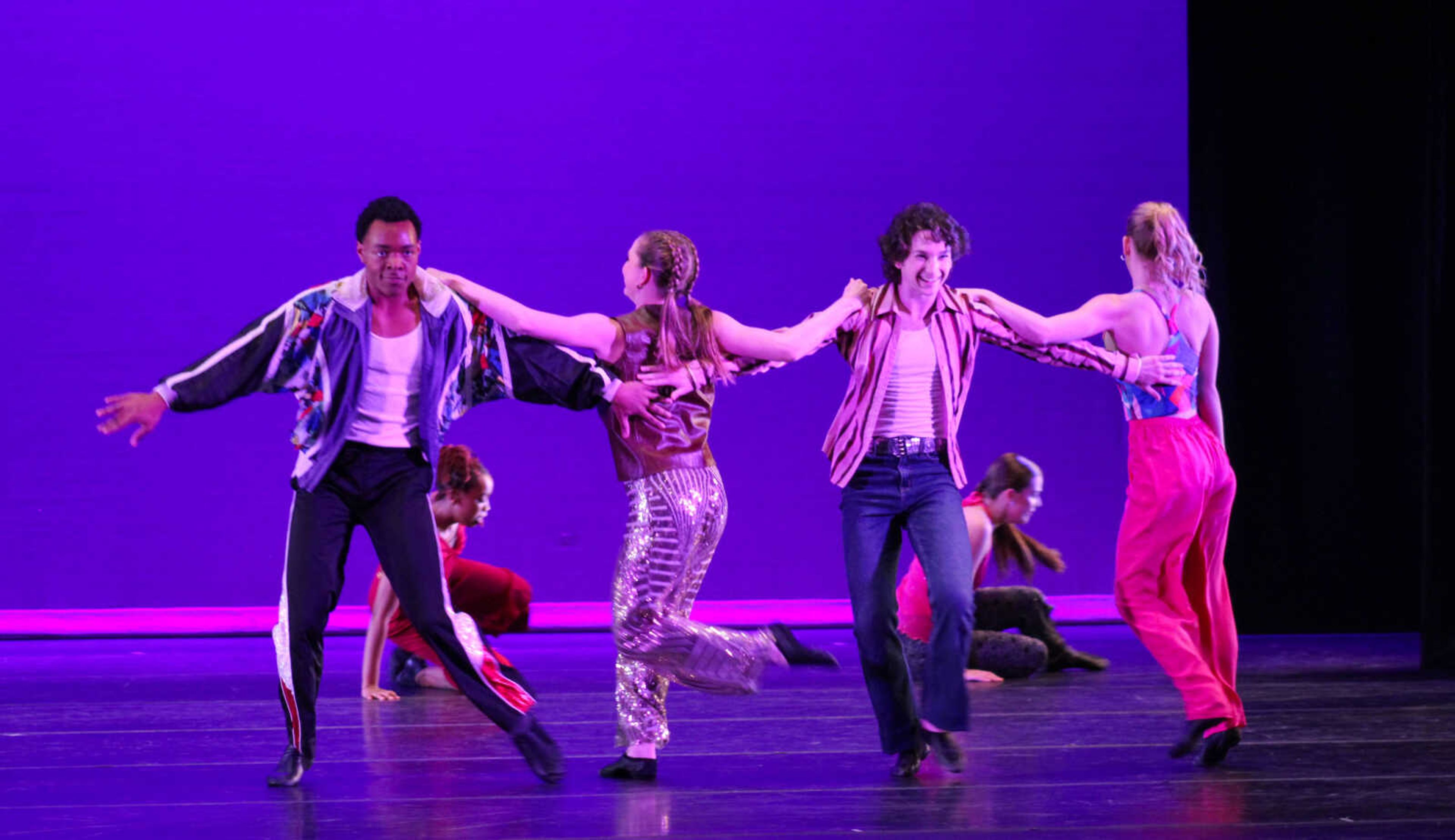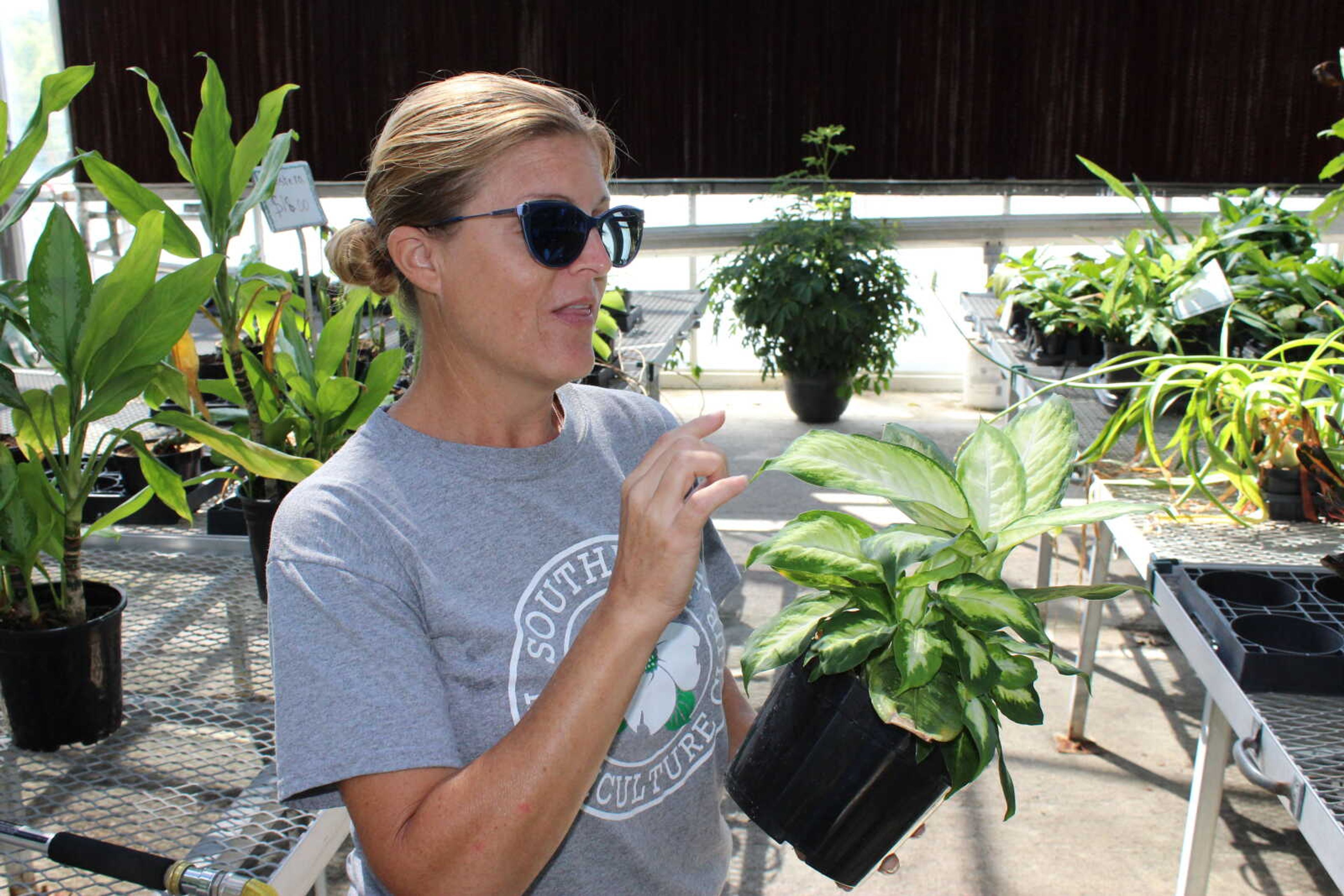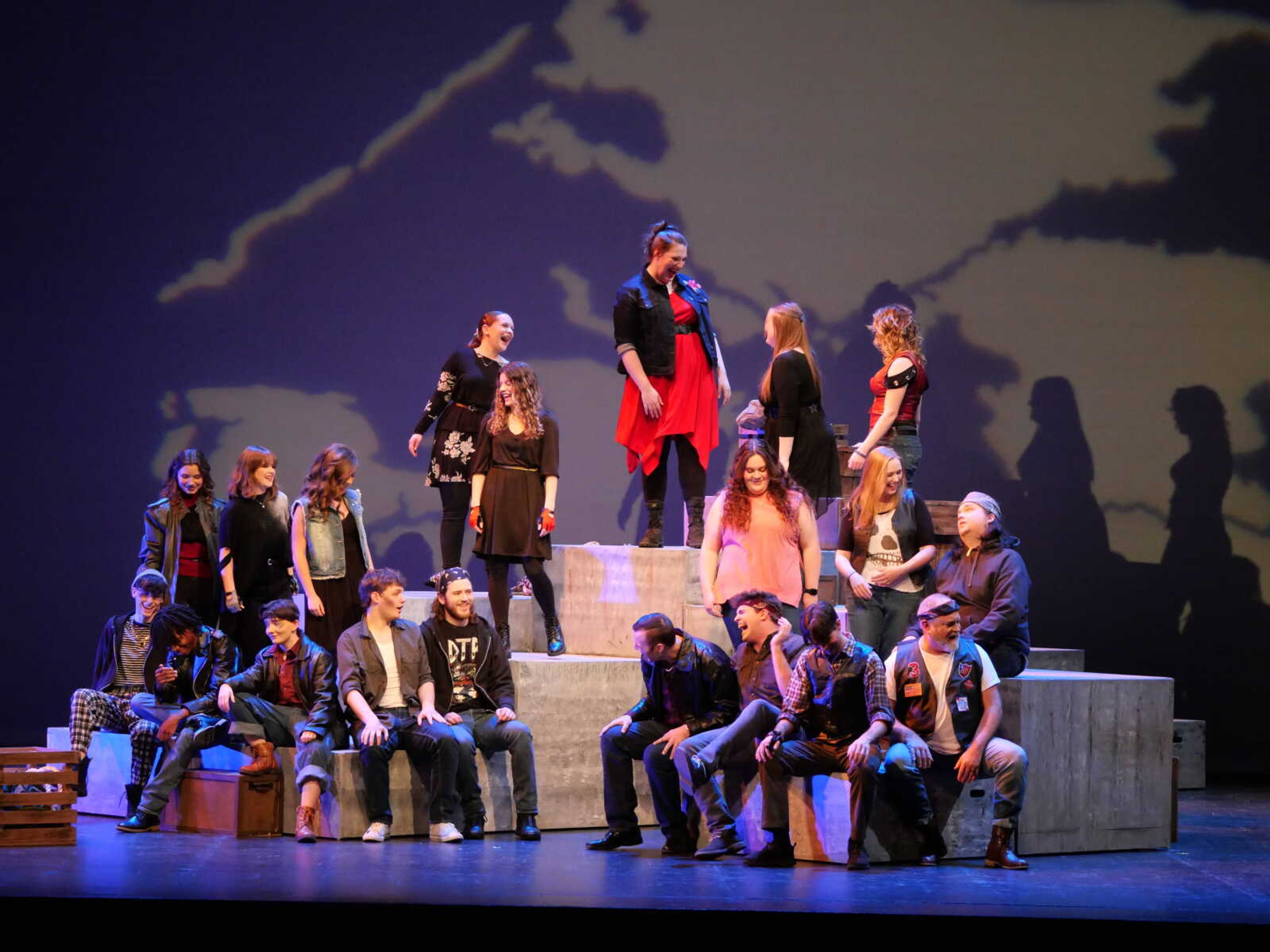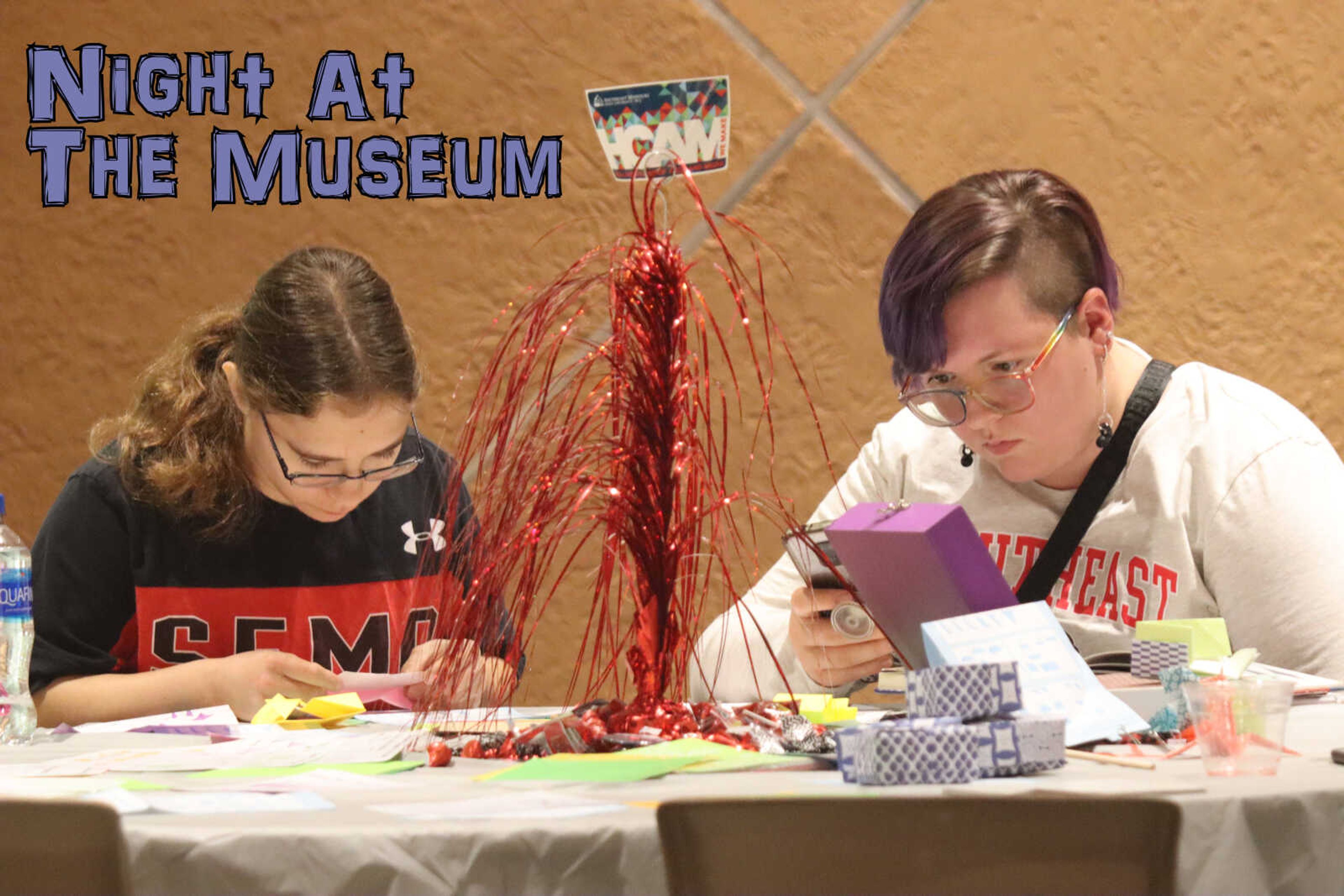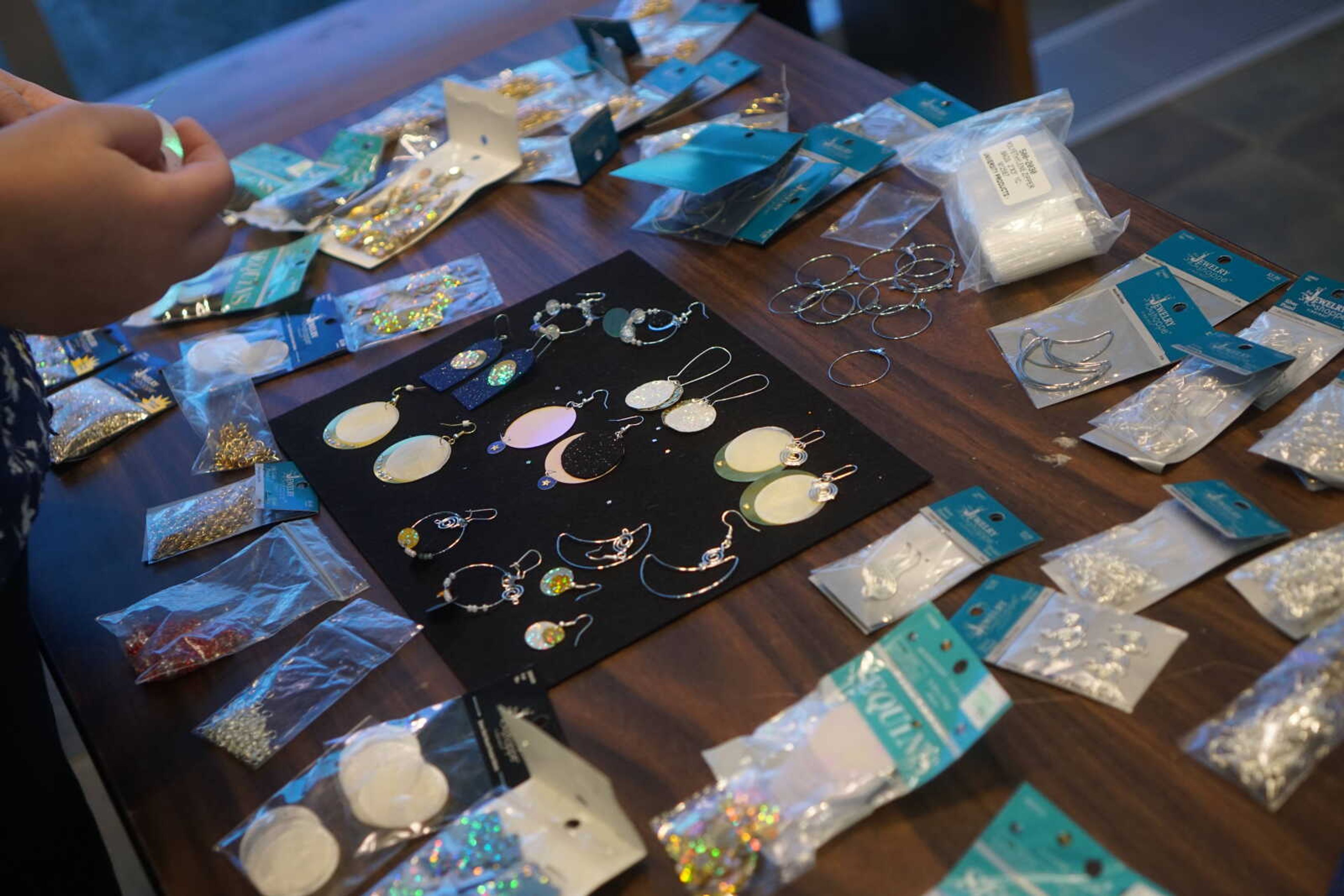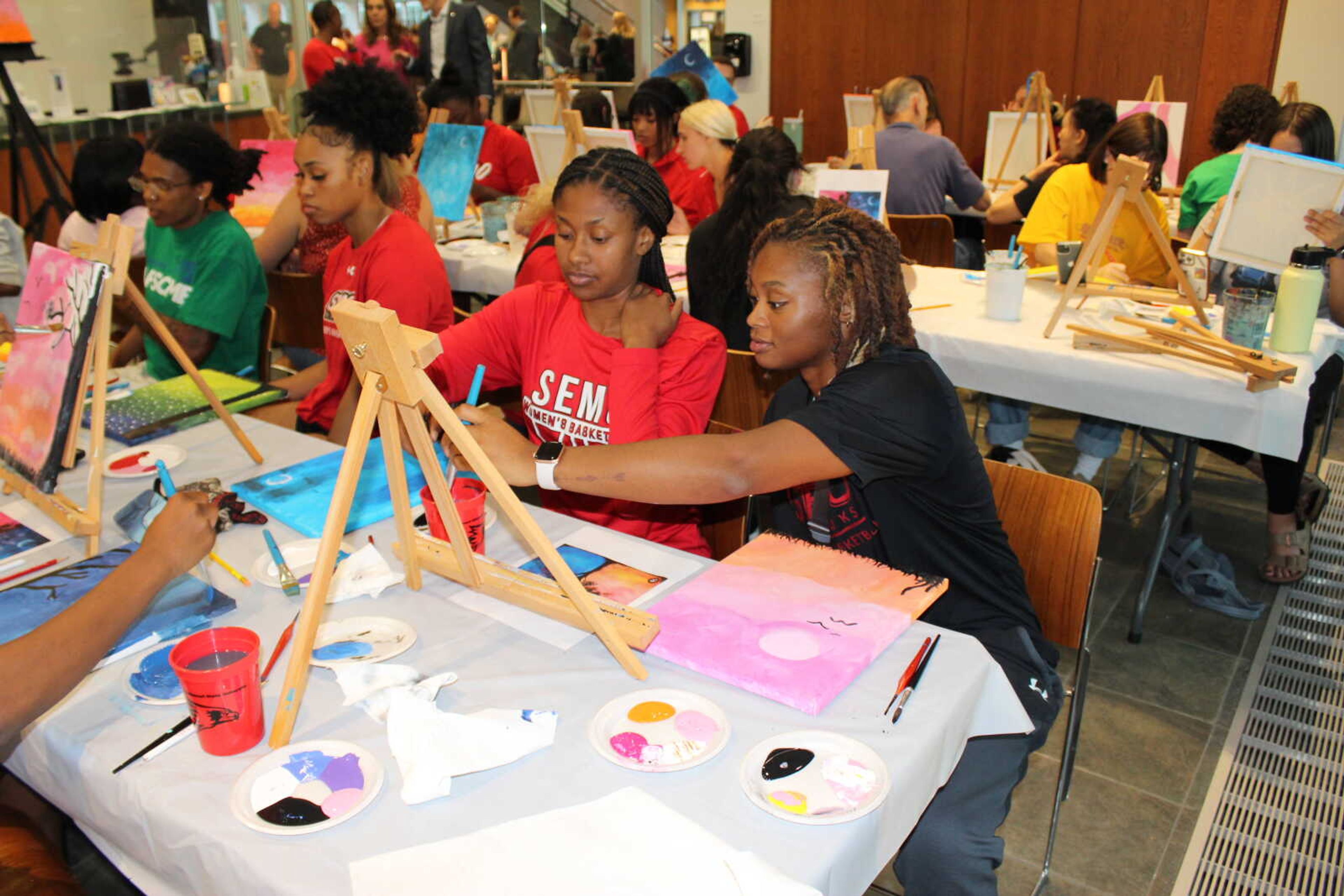Brandon Christensen, music professor as well as Sundays at Three series director at Southeast Missouri State University, said as a musician, it's next to impossible to completely turn off actively listening to any sort of compositional work.
"It's very difficult like when I sit down at a restaurant and there's classical music playing. ... It was really hard to actually pay attention to the conversation and the meal because you're constantly being drawn into the music, even if it's very soft and just playing in the background, because we're trained to think about things on so many levels at once," Christensen said.
He wants to turn that active listening ear on in his students. Music students and music education students apply this thought in their attendance to at least eight recitals and concerts over the course of a semester. Students scan their Southeast ID coming in and then again when leaving any performance hosted by the Department of Music to receive credit. Although, most are doing so already, outside of coursework.
"Music students should be interested in music, so they're going to be going to concerts anyway, so this is a nice way to kind of have a data point to track that," Christensen said.
Daniel Atwood, a guitar performance major, said going to concerts and analyzing music has almost become second nature.
"A music student who doesn't go to eight concerts in a semester probably isn't that serious about being a music student," Atwood said. "We get top quality artists coming through, if you can in your schedule make room to go to it, why wouldn't you be able to make it to eight musical concerts a semester as a music student?"
Whether it's habitual or not, Christensen said the purpose of attending recitals and concerts -- or R&C as music students refer to the course as --boils down to translating what's learned inside the classroom out in the field.
"Integration is really the word," Christensen said. "So we want them to integrate what they learned in music theory and integrate what they learned in music history and also integrate what they're learning in their lessons, technically and on their instrument, and then put all of that together in the understanding of the performance."
A musician, including aspiring musicians, hear music differently as a result. According to Christensen, the aesthetics are still there, but listening musicians are able to follow a piece's compositional structure with their ears, too.
"As a musician when you hear music, of course you're appreciating it aesthetically in the same way that any human being would appreciate music, you appreciate the beauty of it and you're moved by what's happening artistically and aesthetically, but you're also very much aware of what's going on technically," Christensen said. "So while you're listening on an aesthetic level, you're also kind of analyzing on a technical level and you're understanding what's happening on a formal level."
Vocal performance major Jadie Stoverink pointed out Christensen's same attentive ear. She said as she moves closer toward her chosen career field, it's tougher and tougher to separate entertainment and analysis.
"Especially as a vocal major when I go to vocal events, I listen for technique and say, 'Oh, that sounds like they're having trouble with higher notes the same way I am' or 'Their breathing is a little off,'" Stoverink said. "It's a little harder to go to concerts now and not hear it just for what it is. It's hard not to analyze it."
That analytical thought is part of knowing the craft, however. Christensen said the ability to recognize both is part of what takes a musician from student to professional. He wants them to go from a performance straight to the practice room.
Listening to a professional versus a student adds to the trained perception. Stoverink said a student recital calls for more critical analysis. Going into a professional performance, she looks at it with the mindset of a learning experience.
The Sundays at Three chamber music series is dedicated to bringing in traveling professional musicians, who often collaborate in a performance with the department's faculty, to Southeast's campus. The first concert of the season will feature St. Louis-based ensemble The 442's at 3 p.m. Sept. 27 in the Robert F. and Gertrude L. Shuck Music Recital Hall.
"In terms of the series, what I'm hoping that they're [students are] listening for is what's possible," Christensen said. "It's really easy if all you ever hear are student performers to think that's as far as it goes, and you just want to play like a good student, but when you go to a live performance by professionals, then it expands your world a little bit. You really come face-to-face with just how far you can go on your instrument, and that can be really inspiring, I want it to be really inspiring for them."
He isn't saying student ensembles don't have merit, but it's essential students create a balance by going to each.
"It would be a pity if they went through their entire undergraduate career and the only concerts that they went to during that time were other students'," Christensen said. "It's very important to go to student ensembles, but also, as a musician, if you want to sort of grow your ears and have a better understanding of what's possible in your instrument, it's very important to hear professionals and to hear professionals live."
Student recitals fuel comradery between peers, though.
"On the other hand, there's a lot of sympathy and compassion that's there. You want them to do well and you're excited for them and you know them, maybe they played a piece for you in the practice room the other day, so you've got more of a sense of connection to the performance than you would even if you were listening to a professional because you guys are in the same place," Christensen said. "So there's a sense of community building that happens when you're hearing student performances where you get this, more of a collective sense of, 'We're all in this together.'"
Christensen referred to The 442's as a "fusion ensemble." Some members of the acoustic quartet come from a classical background, while others have an upbringing in jazz, but they've paired together for a mix of both styles.
"Of all the R&C concerts you shouldn't miss, this is the one that is the most unique, by far, and I think probably the freshest in terms of musical composition styles and their techniques and their delivery," Atwood said. "You see a ton of recitals that play classical music or they play jazz, but you really can't see another recital like The 442's in Cape Girardeau."
